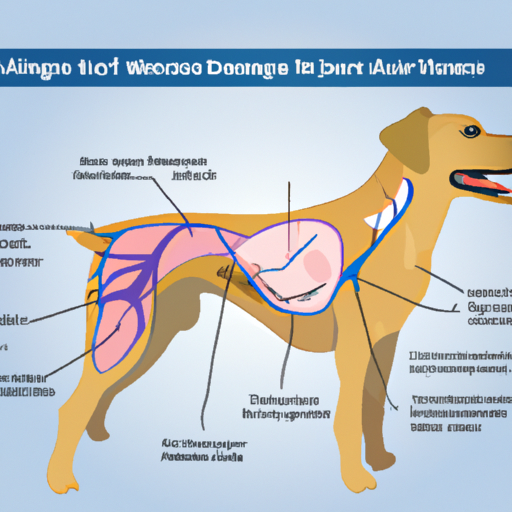As a caregiver, your dog’s health is undoubtedly a top priority. One health condition that you may have come across is megaesophagus. This condition affects a dog’s ability to swallow, leading to a range of other health issues. In this piece, we’ll explore what causes megaesophagus, how it affects your furry friend, and what you can do about it.
H2: What is Megaesophagus?
Megaesophagus is a condition where the esophagus, which is the tube that carries food and water from the mouth to the stomach, becomes enlarged. This enlargement makes it difficult for the dog to swallow properly. Undigested food may stay in the esophagus, leading to malnutrition and weight loss. In severe cases, it can even cause aspiration pneumonia, a life-threatening condition.
H2: Causes of Megaesophagus in Dogs
Megaesophagus can be either congenital or acquired. The former is present at birth and is usually due to a birth defect. The latter develops later in life due to various causes:
- Neuromuscular Diseases: Conditions like myasthenia gravis, which affect the muscles and nerves, can lead to megaesophagus.
- Infections and Immune Disorders: Certain infectious diseases and immune disorders can also cause this condition.
- Unknown Causes: Sometimes, the cause of megaesophagus is unknown. This is called idiopathic megaesophagus.
| Cause | Description |
|---|---|
| Neuromuscular Diseases | Affects muscles and nerves |
| Infections and Immune Disorders | Triggered by infections or immune system abnormalities |
| Unknown Causes | No identifiable cause; termed as idiopathic |
H2: Symptoms of Megaesophagus
Look out for the following signs in your dog:
- Difficulty swallowing or “dysphagia”
- Regurgitation of food or water
- Weight loss
- Lack of appetite or “anorexia”
- Excessive drooling or “ptyalism”
- Bad breath or “halitosis”
H2: Treatment and Management of Megaesophagus
While there is no cure for megaesophagus, there are management strategies that can help:
- Feeding Strategies: Feeding your dog in an upright position can help food move to the stomach. Special feeding bowls called Bailey Chairs can help with this.
- Dietary Changes: Your vet may recommend a diet of easily digestible food.
- Medication: Some dogs may require medication to manage underlying conditions or to prevent aspiration pneumonia.
H2: FAQ
Q: Can a dog live a normal life with megaesophagus?
A: Yes, with proper management, many dogs with megaesophagus can live a normal life.
Q: Are certain breeds more prone to megaesophagus?
A: Yes, breeds like the German Shepherd and Irish Setter are more likely to develop this condition.
Q: Can megaesophagus be prevented?
A: Since the causes of megaesophagus are diverse and often unknown, it’s difficult to prevent the condition entirely. However, regular vet check-ups can help catch and manage it early.
Armed with this knowledge, you are better equipped to detect and manage megaesophagus in your dog. Remember, early detection and management can significantly improve your dog’s quality of life.



